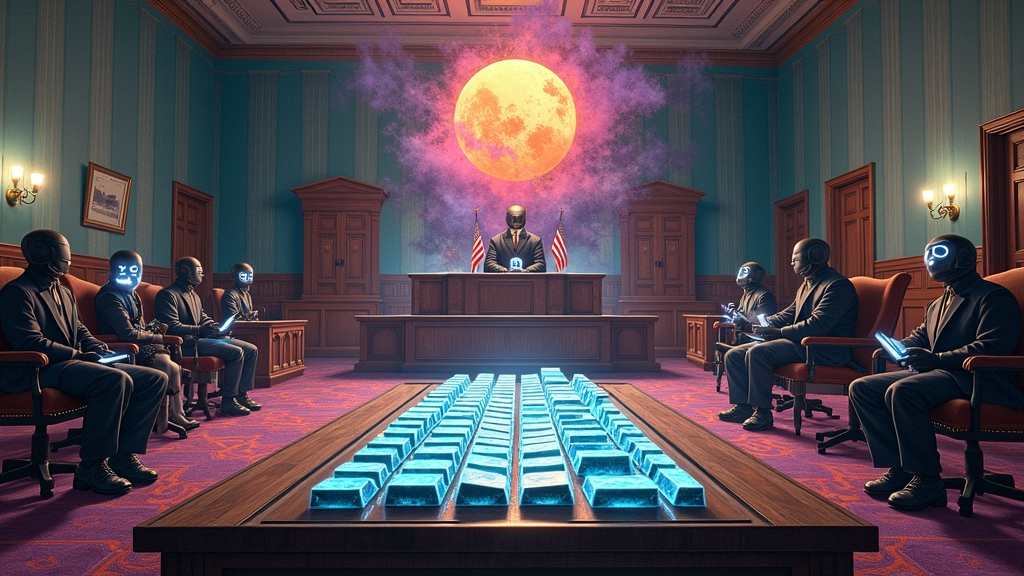AI ‘Godfather’ Stumped That Dumb Stuff Runs The World, Apparently Never Met A Lobbyist
In what can only be described as the intellectual equivalent of locking oneself out of an unlocked car, Geoffrey Hinton, the so-called “godfather of artificial intelligence,” has admitted publicly that he struggles to find examples of less-intelligent entities controlling more-intelligent ones. Yes, really. The man who designed algorithms to play God with our data apparently skipped class the day sheer idiocy took over human systems.
“I just… I can’t think of anything,” said Hinton at a recent panel discussion, furrowing his brows like he was trying to remember if he left the oven on. “I mean, except maybe the mother-baby relationship, because, you know, the baby cries and the mom brings a bottle. But other than that? Total blank.”
Critics have been quick to point out that Hinton might have missed a few minor examples, like, oh, mosquitoes stopping entire camping trips, Twitter trolls steering elections, or the entirely catastrophic success of single-use plastics. “The man’s built machines that can write poetry but hasn’t clocked that humans are getting punked by viruses, TikTok trends, and weather patterns,” said Dr. Rachel Eye-Rollington, an interdisciplinary researcher and professional skeptic. “Ever heard of, I don’t know, capitalism? Apparently not.”
Take COVID-19, for instance. A viral nugget of dumb, spiky protein molecules brought global commerce to its knees faster than you can Google “just how contagious is this thing?” Reportedly, Hinton spent that whole year muttering things like, “Surely, humans can’t be *this* easily derailed,” while sourdough bread took control of society’s free time and people debated toilet paper stockpiles like it was rocket science.
The “controlled by dumb stuff” category stretches well beyond viruses. “I’d pay Hinton five bucks to sit in on a family group chat for millennials,” said Jane Bennett, philosopher and keen observer of chaos. “They’ll crucify one another over gif etiquette, let their fitness app call them a lazy piece of s#&%, and still somehow re-elect local officials whose campaign slogans are ‘Meh, it’s my turn.’ Less intelligent entities controlling smarter ones? Look no further than your HOA board.”
Critics note that Hinton’s blindness isn’t all that surprising within the context of Silicon Valley, a holy land devoted to very smart people continually outwitted by the dumb creations they release into the wild. Algorithms meant to deliver cat videos decide elections now; meanwhile, TikTok dances torment parents worldwide.
Yet Hinton, whose AI warnings err on the side of apocalyptic doom, still seems optimistic. Well, vaguely optimistic. Or maybe just oblivious. “I don’t think AI could ever actually control us in the way you’re describing,” he said, blissfully unaware as Google Calendar beeped to remind him that it was now time for his digital smart thermostat to lower the temperature on his behalf.
Despite his good intentions, some theorists argue that humans themselves long ago abdicated their supposed “mastery of all they survey.” “Look, we couldn’t even keep the ozone layer from dissolving or convince people to stop throwing refrigerators into the ocean,” said Graham Harman, philosopher and part-time reality-check provider. “If humans are the smartest creatures in the room, then we’re also the designated clowns. Meanwhile, dumb non-human stuff—viruses, plastics, Jeff Bezos’ bald head—tells us exactly where to sit, literally.”
Nonetheless, Hinton says humanity’s future depends on a tight grip on its high-tech tools. “We just need to stay one step ahead,” he said, moments before his Roomba got tangled in his shoelaces and barked out an error message that sounded suspiciously like a threat.




